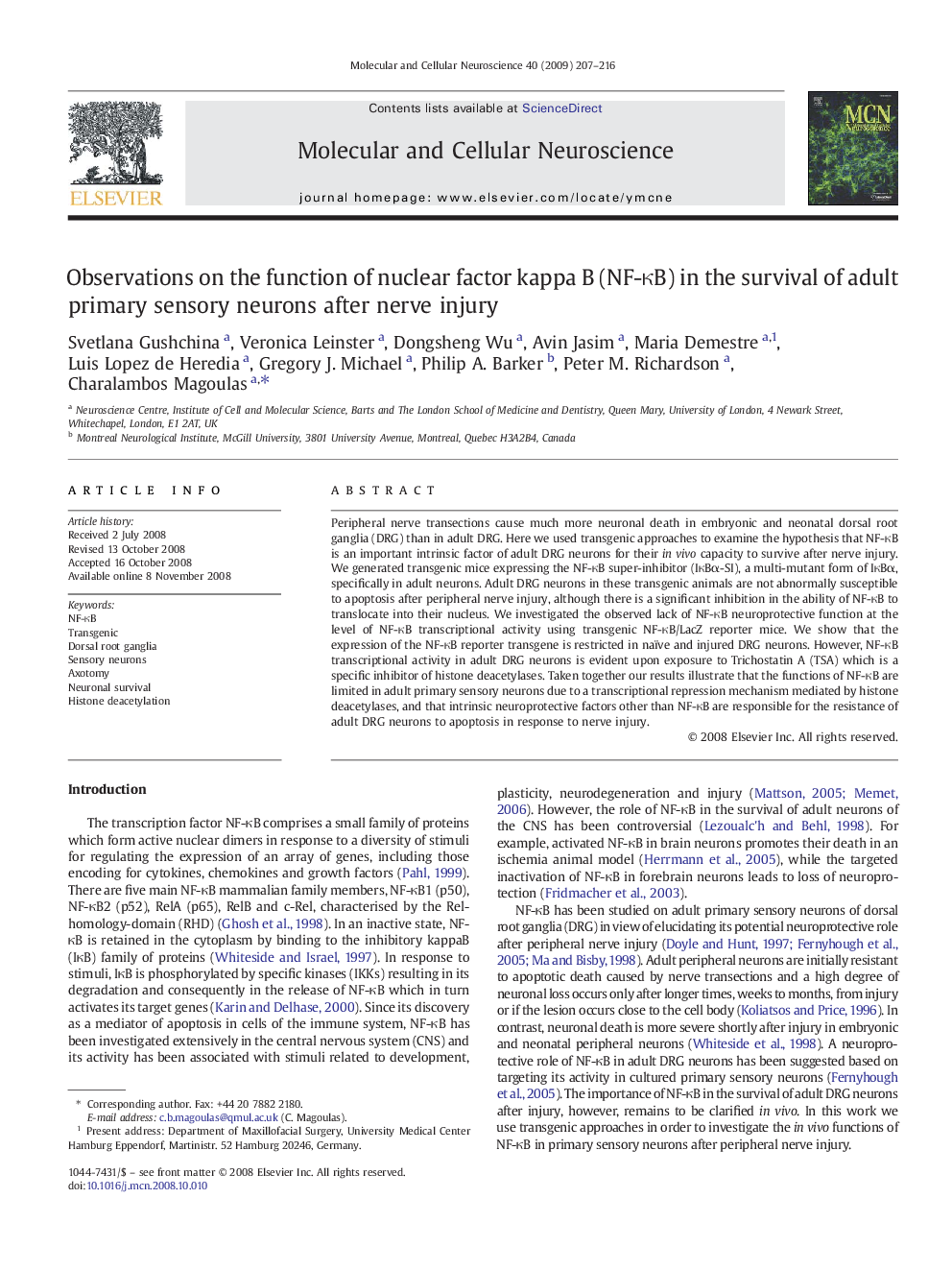| Article ID | Journal | Published Year | Pages | File Type |
|---|---|---|---|---|
| 10956716 | Molecular and Cellular Neuroscience | 2009 | 10 Pages |
Abstract
Peripheral nerve transections cause much more neuronal death in embryonic and neonatal dorsal root ganglia (DRG) than in adult DRG. Here we used transgenic approaches to examine the hypothesis that NF-κB is an important intrinsic factor of adult DRG neurons for their in vivo capacity to survive after nerve injury. We generated transgenic mice expressing the NF-κB super-inhibitor (IκBα-SI), a multi-mutant form of IκBα, specifically in adult neurons. Adult DRG neurons in these transgenic animals are not abnormally susceptible to apoptosis after peripheral nerve injury, although there is a significant inhibition in the ability of NF-κB to translocate into their nucleus. We investigated the observed lack of NF-κB neuroprotective function at the level of NF-κB transcriptional activity using transgenic NF-κB/LacZ reporter mice. We show that the expression of the NF-κB reporter transgene is restricted in naïve and injured DRG neurons. However, NF-κB transcriptional activity in adult DRG neurons is evident upon exposure to Trichostatin A (TSA) which is a specific inhibitor of histone deacetylases. Taken together our results illustrate that the functions of NF-κB are limited in adult primary sensory neurons due to a transcriptional repression mechanism mediated by histone deacetylases, and that intrinsic neuroprotective factors other than NF-κB are responsible for the resistance of adult DRG neurons to apoptosis in response to nerve injury.
Keywords
Related Topics
Life Sciences
Biochemistry, Genetics and Molecular Biology
Cell Biology
Authors
Svetlana Gushchina, Veronica Leinster, Dongsheng Wu, Avin Jasim, Maria Demestre, Luis Lopez de Heredia, Gregory J. Michael, Philip A. Barker, Peter M. Richardson, Charalambos Magoulas,
